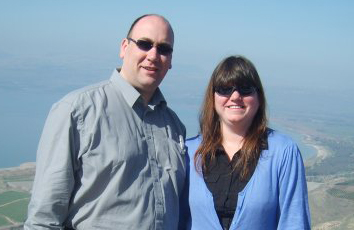Today marks the start of an annual international multi-organisational campaign: the 16 Days of Activism Against Gender-Based Violence. Since 1991, it has taken place from 25 November – designated by the United Nations as the International Day for the Elimination of Violence Against Women – until 10 December – International Human Rights Day.
The campaign will fail. On 11 December 2020 there will still be violence committed against women and girls by men. On that day, around the world, 137 women will be killed by a member of their family, according to statistics from the UN, and many more will be raped or subjected to sexual assault or abuse.
By the end of this year’s 16 days, there will have been 480 Days of Activism Against Gender Based Violence since the inception of the campaign in 1991. And, of course, campaigners do not down tools during the rest of the year. It isn’t just special days, like International Women’s Day on 8 March each year; or the International Day for the Elimination of Sexual Violence in Conflict on 19 June each year – but throughout the year, all over the world, groups are campaigning for an end to gender-based violence. Nor is it just on Thursdays, when many people – myself included – wear black clothing as part of the World Council of Churches’ Thursdays in Black campaign. Who knows how many Thursdays there have been since this campaign began in the 1970s.
So why do women’s groups bother? Why isn’t it working?
The answer to the second question – “why isn’t it working?” – can be found in the wording of the first question – “why do women’s groups bother?” And the chances are that you read that phrase with it jumping out to you as wrong.
It is wrong, because ending sexual and gender-based violence and abuse is not a “women’s issue”. And it is not the responsibility of women to end it.
In the main, it is women who suffer from it; but it is men who perpetrate it.
Violence against women is an issue for the whole of society; and as it is men who perpetrate it, it is men who have to stop it.

For 25 years, as her husband, I supported Jill Saward’s personal campaign to support victims and survivors of sexual assault and abuse. Jill’s response to the rape and sexual assault she suffered; and her treatment at the hands of the legal system, helped thousands of women.
Jill was not a counsellor or a psychotherapist; but over the years she was in direct personal contact with thousands of victims and survivors across the world. Many became her friends as she stood alongside them and helped them to access support services and to challenge official responses by official law enforcement agencies. She made a real difference to a lot of people.
But she also helped indirectly through her campaign of public advocacy. Since she put her head above the parapet in 1991, she was rarely out of the public eye. She made numerous television, radio, magazine and newspaper contributions on a range of topics to do, primarily, with rape and sexual assault.
After her death, I spoke to a number of people working to support victims. They all agreed that Jill’s most powerful contribution was her voice – she could speak out in a way that support organisations couldn’t. It is very difficult for a victim support agency to criticise government or police actions on sexual violence – they are usually dependent on funding from the government sources, including local Police and Crime Commissioners. To speak out on behalf of victims and survivors could threaten the service’s very existence.
Jill received no such funding and so could speak out where many others couldn’t; and she partnered with those who could.
Jill’s campaign was not finished. Like the 16 Days (or the 480 Days) of Activism on 11 December 2021; like the countless Thursdays in Black; like the many International Women’s Days or International Days for the Elimination of Sexual Violence in Conflict – the fight to end gender-based violence must go on.
Today, The Jill Saward Organisation is launched, on the first of the 30th 16 Days of Activism. Through the Jill Saward Organisation, I – and others – will continue Jill’s campaign for a world without gender-based violence; and, before that day comes, for better treatment of victims and survivors.
Please join us by clicking here.